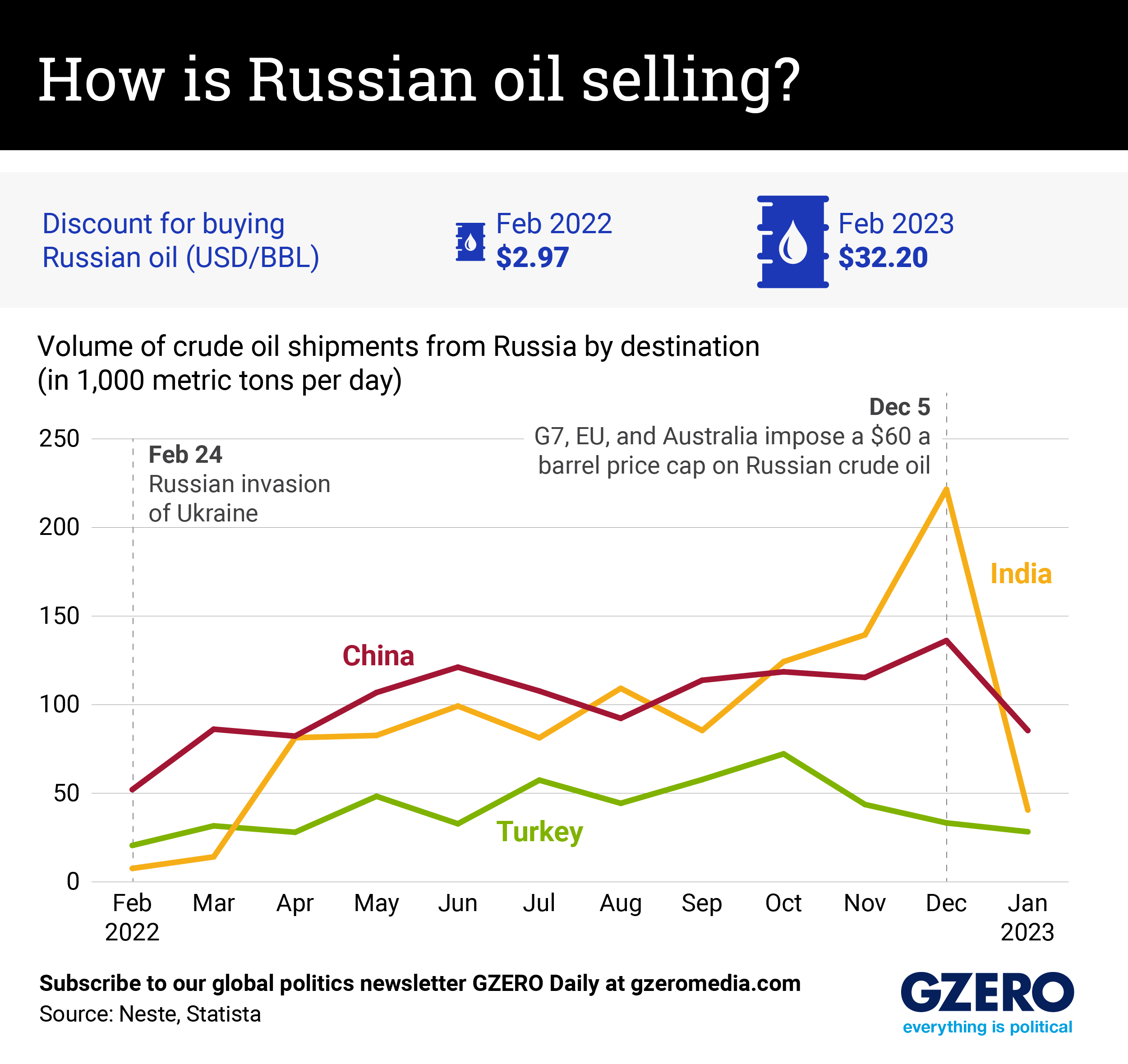February 16, 2023
Russian oil has been selling at a massive discount since the war in Ukraine began last February, which has been a double-edged sword for the Kremlin. On the one hand, it brings in some much-needed revenue and makes Russian crude an attractive buy at a time of global inflation. On the other hand, selling at a discount means selling at a loss in revenue to a dwindling number of buyers. Adding to Russia’s woes, on Dec. 5, the EU instituted an embargo on Russian crude shipments at sea, leading to a massive drop-off in exports across the board, even to markets it depends on in Asia — chiefly China, India, and Turkey. The G7, Eu, and Australia also placed a $60 per barrel cap on Russian oil, so the discount is likely to remain in place as Russia tries to ship over long distances to Asia. We look at the discount for Russian crude today vs. when Russia invaded Ukraine, and how much each of Russia’s top three customers has been buying since the war began.
More For You
With close ties to both the US and China, can Singapore survive in an increasingly fragmented and chaotic world? Singapore’s President Tharman Shanmugaratnam joins Ian Bremmer on the GZERO World Podcast.
Most Popular
Think you know what's going on around the world? Here's your chance to prove it.
UK Prime Minister Keir Starmer shakes hands with Chinese President Xi Jinping, ahead of a bilateral meeting in Beijing, China, on January 29, 2026.
Carl Court/Pool via REUTERS
This week, Prime Minister Keir Starmer became the first UK leader to visit China in eight years. His goal was clear: build closer trade ties with Beijing.
Igmel Tamayo carries charcoal to sell on the side of a road for use as cooking fuel in homes, after US President Donald Trump vowed to stop Venezuelan oil and money from reaching the island as Cubans brace for worsening fuel shortages amid regular power outages, on the outskirts of Havana, Cuba, on January 12, 2026.
REUTERS/Norlys Perez
© 2025 GZERO Media. All Rights Reserved | A Eurasia Group media company.
